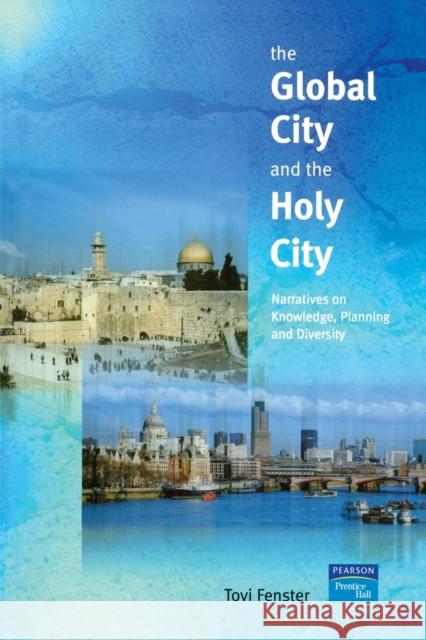The Global City and the Holy City: Narratives on Knowledge, Planning and Diversity » książka
The Global City and the Holy City: Narratives on Knowledge, Planning and Diversity
ISBN-13: 9780582356603 / Angielski / Miękka / 2003 / 344 str.
The Global City and the Holy City: Narratives on Knowledge, Planning and Diversity
ISBN-13: 9780582356603 / Angielski / Miękka / 2003 / 344 str.
(netto: 287,39 VAT: 5%)
Najniższa cena z 30 dni: 287,08
ok. 22 dni roboczych
Bez gwarancji dostawy przed świętami
Darmowa dostawa!
Are all cities alike? This text highlights the extent to which the different histories, economies, politics and cultures of cities affect people's daily practices so that they vary from one city to another. In particular, it focuses on whether the assumed differences between London, the global city and Jerusalem, the holy city reflected in people's experiences in living in the two cities. The book suggests that some of these everyday practices are not so different as might be assumed. It proposes that people of different national, cultural or gender identities might experience their city - as home for similar reasons. It explores the experiences of women and men of different national, cultural and ethnic identities and age groups, who live in the two cities. Their narratives focus on three main concepts: comfort, belonging and commitment as they are experienced with regards to seven categories of environments: the home, the building, the street, the neighbourhood, the city center, the city itself and urban parks in the city. everyday life experiences? Two significant identities are at focus in the analysis; gender and national identity. The analysis of each of the concepts discovers how these identities shape peoples' ways of interpreting and the meanings given to comfort, belonging and commitment. The analysis is carried out among people of both minority and majority groups in the two cities. Nationality and gender identities cross cuts the analysis through the whole book chapters. It makes the links between everyday life experiences termed in the book as: local embodied knowledge and the planning practice. The book shows how it is possible to articulate the local knowledge that has been exposed and analyzed in the various book chapters into the planning practice. The book suggests new ways of incorporating these similar and different experiences in the planning process.











